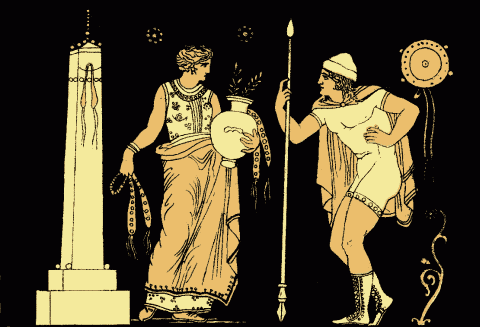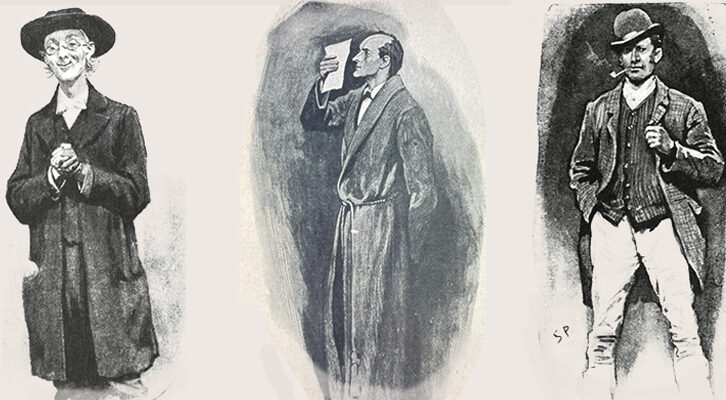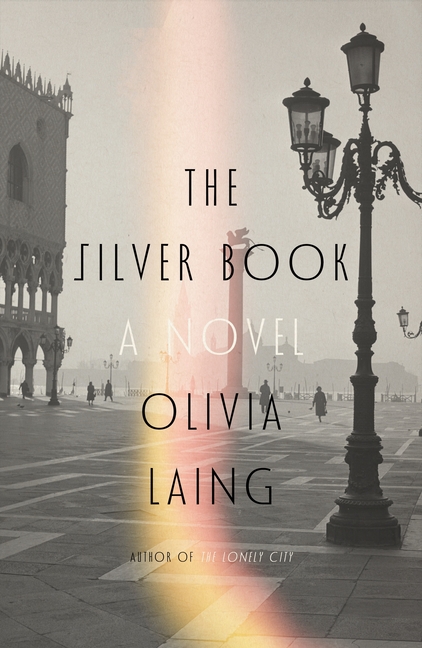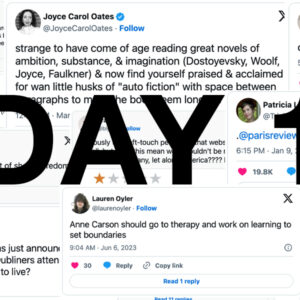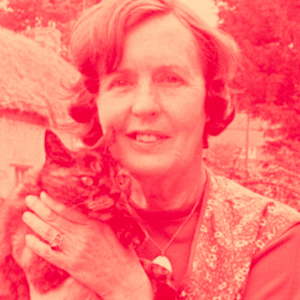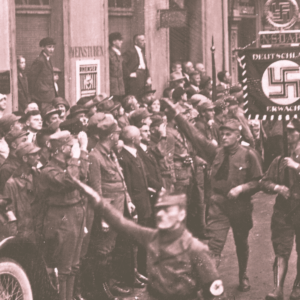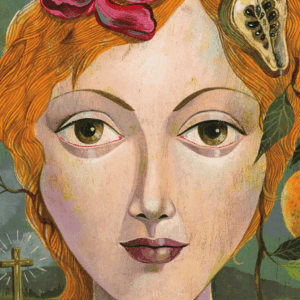
Tracy K. Smith Talks to Gregory Pardlo
On Poetry, Manifestos, and David Bowie vs. Elton John
Gregory Pardlo’s book of poetry, Digest, won the Pulitzer Prize last year. Tracy K. Smith’s memoir, Ordinary Light, has been shortlisted for this year’s National Book Award for non-fiction. Here, the two poets discuss the balance between writing and family, the confessional vs. the abstract, and David Bowie vs. Elton John.
Gregory Pardlo: A journalist came by this morning to get some footage—photos—of me working at my desk at home. The visit was planned, mind you, but she ended up getting the girls on camera, which was unexpected. The girls loved it, and they were having so much fun talking to the journalist, I didn’t really think about it until later in the day, when fears started to creep in, that maybe it was a bad idea to include them. I write about the girls in my poems and essays all the time, and I don’t think twice about doing it. But then, I’m making characters out of them in my writing, characters that can stand between my real children and the outside world. I think it’s interesting that writing poems about my kids might become for me a way of creating a buffer zone. I believe you’re comfortable writing about your kids. Do you make a distinction between them appearing in the media, and them appearing in your writing?
Tracy K. Smith: Luckily, I haven’t had many such opportunities to feature the kids in the media. There was one New York Times weekend feature that included a few shots of Naomi a few years back, and I didn’t think much about that, though lots of folks mentioned seeing her in the paper, and that did alert me, belatedly, to some of the concerns that you very wisely raise. At that time, I’d only ever written about her in utero! But now I have dragged her in glimpses into a memoir, and I find myself writing poems about the struggles of motherhood. It is glorious, yes, and she is miraculous, yes, as are her brothers, but what drags me to the page is often the unresolved, unspeakable tension that being the parent that I am to the child that she is inevitably raises. Poetry continues to be my site for grappling with things that aren’t necessarily presentable. I wonder what she, when she is old enough to perhaps seek out my work, would make of not only these glimpses of herself, but of the mother who is so open about the conflicts she has encountered in learning to be a parent. That is the concern I feel more now than anything else; is there a chance that my honesty about myself might unsettle or even hurt her? If so, I believe that the thing to do might be to sit on those poems until she is much much older—maybe until she is dealing with similar conflicts of her own. That doesn’t mean not writing those poems. It just means not being in a rush to publish them.
There’s a way of looking at that decision as tantamount to self-censorship. But the tradeoff as I see it is this: the fact of my children makes me eager to speak to questions that might, one way or another, be meaningful for them. Not for them as my children, but for them as individuals, citizens, thinkers. They’ve upped the ante on the kinds of questions I have been urged to consider. I am writing much more about race, because I think race is a social question that will be relevant to them. I am thinking much more about the environment for similar reasons. It’s the impossible wish to say something that will save them, though of course the only thing that will save them is the thing they determine to do for themselves. Maybe, though, the impossible scale of their mother’s ambition will embolden them to do bigger, wilder things for themselves. Your girls are old enough to read. Do they read your work or the articles about you? If so, what do they have to say? Does that person line up with the person they know as Dad?
Pardlo: I had to ask them if they’d read anything by or about me, and their confused faces told me it hadn’t crossed their minds to do so. They may not be ready to think of their father as a person in the world so there’s little chance yet of them having to balance the public father with the familiar dad. Like yours, the gravitational pull of their dense little egos has had an effect on my work. I think it’s given my philosophical and metaphysical daydreaming a practical edge. I can still get lost for hours thinking about some whimsical detail, but I’m more often now drawn back the question of how that detail will play out in the lives of my children. You bring up race and the environment. These are probably my two biggest concerns—or rather, the lenses through which I think about the future. I don’t mean to say that I believe in race or racial thinking, but that the problem of the 21st century will be figuring out how to dismantle the mythology of race while honoring the real relationships and histories that we constructed while under the spell of that mythology. And there is something about the ways our attitudes toward nature are bound up in the impulse to dehumanize others through, for example, the mythology of race—in the impulse, even, to place nature in the service of humanity. My mandate as a parent and poet, as I see it, is to write poems that chip away at that arrogance, however subtly.
But then I get self-conscious about writing when I could be spending time with my family. Ginger is at work today, and I’m home alone with the girls. I oscillate between feeling lucky and feeling guilty. The former for how well they play together, resolving their own squabbles, self-directing their play, and allowing me to work in relative peace for most of the day (of course, it’s a crapshoot; tomorrow they might be ripping each other’s hair out and putting holes in the drywall). They play in their room, and I write at the kitchen table, listening to the latest Alabama Shakes album. I feel guilty because—and this is probably more of a question than a statement—shouldn’t I be orchestrating some fantastic activity with them so delightfully memorable that they’ll have no choice but to grow up to be happy, well-adjusted adults?
Smith: Oh, ha! I thought about that for years when I was working on my memoir, and paying people to look after them so I could hole up behind some closed door and write about family. The ridiculous and humbling irony of that. Sometimes I told (and still tell) myself that many parents do the same thing for far more hours a week so they can go to work. But there is this fantasy we writers sometimes have that involves orchestrating magic, or asking the imaginative work we do to create magical realities for our children. That fosters guilt in my life. It makes me feel guilty for doing the work that I love, which, let’s face it, is satisfying, but it’s also work. It’s what pays the bills and feeds them even while it also keeps me sane. It’s also the thing that makes me eager and energetic to make dinner and give baths and read stories and roll around on the floor. It’s the counterbalance without which I am, I hate to say it, a stingy parent. But work is also necessary, and I think it’s important for children to see their parents doing things that are deeply satisfying, to see their parents create something, struggle with something. Isn’t that important for forming happy, well-adjusted adults? As a woman, I’m constantly reassuring myself that it’s important for my children to see a woman doing something she is passionate about, going away and coming home, speaking publicly about the things she believes in. Our culture (our civilization!) still seems to celebrate that in men more than it does in women. I’m the one who gets asked, publicly, how I manage to write and teach and have three kids. Do you get those questions, or do people just assume there is a woman doing all of the homemaking so you can go upstairs and write?
Pardlo: People certainly do assume Ginger is managing the home front, and she often is, honestly. We were recently brainstorming ways to manage the new demands on my time that have resulted from the prize. I tend to say yes to each invitation I get without considering the macro-level life-management stuff. This is male privilege. I presume I have liberty in my public life the way Ginger, who is a light-skinned Latina, presumes to walk through a department store without being followed or surveilled. But Ginger had a funny idea recently that wasn’t necessarily intended to address male privilege, but seems apropos. She said she’d levy a family tax every time I miss dinner and the girl’s bedtime. Her rationale was interesting. First, the tax would encourage me to protect my time. If I’m not careful, Ginger knows I could end up agreeing to read and/or speak either for some vaguely idealistic motive or because I’m such a compulsive people-pleaser. If giving a reading were to cost me monetarily, I might be less inclined to agree to do it. Second, the tax would keep me present to the fact that “my time” is not just my time, and is valuable as a family resource. I tell you this story to give you a sense of the challenges and the spirit of collaboration in our home. We’re in this together, and accountably so. Still, I’m pleasantly surprised whenever someone recognizes that I am a father before I’m anything else.
I’ve always meant to ask you something about your process. Ed Hirsch has this “demon vs. angel” approach to reading and thinking about poetry which is not meant as a qualifying system like good or bad, but as a way of locating the wellspring of a poet’s creative energy. Hirsch juxtaposes Lorca and Rilke, for example. And this part may not at all be what Hirsch intends, but I want to think of “David Bowie vs. Elton John.” Your guiding spirit would be Bowie, I’m speculating, and mine would be Elton John. I mean, the title of your second book is Duende, so I don’t pretend this is groundbreaking analysis. But your work has this terraforming effect in that it takes me someplace otherwise inert, and conjures out of that cognitive desolation a lush and vital world. When I read my own poems, I often feel like they’re just asking the reader to follow the bouncing ball from one idea to the next like lyrics on a karaoke screen (which is not at all fair to Elton John or karaoke). Do you think I might be on to something?
Smith: I love the playlist you just conjured in my head! “Tiny Dancer,” “Amoreena,” “Daniel” and “Changes,” “Heroes,” “Five Years”—oh, the glam magic! I’d be happy as any 1970s pop legend. Truly. But what I really hear in your statement has to do with temperament, and the way I see that is really informed by the vocabulary Gregory Orr brings to that term. Do you know his essay, “The Four Temperaments,” which came out maybe 20 years ago or more? It has really stuck with me since I encountered it in grad school. Basically, he suggests that every poem has four temperaments, to varying degrees: Music, Imagination, Story and Structure. The limiting temperaments (music and structure, if I recall correctly) push against the expansive ones (story and imagination) and together they form the harmony that is a poem. Of course, every poet has the natural inclination toward certain temperaments, and must (or ought to) work at the others. If I were going to drag that framework into my own vocabulary, I’d say that music, image, form and departure are the things I’m conscious of managing in a poem. Image and form might be the things that come most naturally to me, but when I get stumped and run out of things to say, I stop and see how far music and associative departures can get me. That’s kind of a survival strategy, and it also means that my poems, by design, are going to lead me someplace I don’t know how to get back from. Maybe you’re saying that for you there are ideas, theories, logic systems that spring most naturally from any given poem, and that the other things might be more the result of choice or effort? I love the wild departures, and the ambitious forms that characterize Digest and set it apart from Totem. Were you conscious of wanting to set off in a different direction in writing the follow-up to that wonderful first collection, or did your method change of its own volition?
Pardlo: It was an intentional shift. In Totem, I was trying to write “a poem.” By that I mean I started out with a predetermined notion of what a poem could be or look like. I was much more controlling—which is a product of fear—in the process. With Digest, I was more willing to let the writing dictate its own terms, more willing to trust that my unconscious would lead me somewhere, and that my job was to let down my ego-defenses enough that I would be able to hear the truth. It’s the logic of psychoanalysis, I admit, and I’ve certainly logged enough hours in therapy to know. But it’s not what I would call a confessional mode. I’m not looking to bare my soul. You talked about poetry being the site where we can grapple with things that aren’t necessarily flattering or that might not show the poet (acknowledging the truth that many, if not most, readers equate the speaker in the poem with the poet) in a flattering light. I read that as generosity. It takes a generous spirit to offer the first person pronoun as a representative of human complexity. Students sometimes resist using the first person because they say they don’t want to be the center of attention in the poem. True, the poem will fail if it is written in service of the poet’s ego. But I think it also will likely fail if its emotional import is projected onto an amorphous collectivity. “We” is preferred by royalty because that pronoun releases the individual from culpability. But it also prevents the possibility, I think, of any meaningful empathy being called forth from the poem. Have you thought of your work as confessional or “post-confessional” in any way? What does that term mean for you in the present literary landscape?
Smith: I remember the surprise, after my first book had come out, at being described as “confessional.” I think I was surprised as being described at all, to be honest, let alone being linked with an actual literary tradition. It wasn’t then and still is not how I see my own work, at least not primarily. But I do recognize that there is a strong element of biography that does play a role in a great number of my poems. What I really think that poets operating in the “confessional” or “post-confessional” mode are doing is admitting to the primacy of lived experience, owning the powerful feeling of being one’s own “first person.” But I think it’s more interesting than that. When my own experience comes into a poem, it’s not so much because I have a tremendous sense of pride or even curiosity in what I’ve done or experienced, but because it’s material I hope might manage to shed light upon something else, something more. This is where the concrete nouns begin to break down. I think any poem, no matter the topic, is an endeavor to get to whatever sits behind what we think we know or what we have learned to name. It’s fundamentally impossible, but there are those moments where a little shiver of feeling enters into the process and you can tell yourself you were, momentarily, close to it.
That will strike some readers as frustratingly abstract. Another way of putting it might be to say that every poem, no matter its specific terms, is seeking to collapse the distance between seemingly disparate or incompatible things. I think that’s what metaphor is doing; at its best, it’s not working to reproduce a literal sense of what something feels like or resembles, it’s striving for purposeful distortion. It’s saying: “In order to understand the shock or thrill or power of this particular experience, you’ve got to walk away from what you normally associate it with, and consider it by way of these wildly different terms.” That sense of distortion is what gives us access to the true strangeness, the true impact of our most powerful feelings.
But I want to come back to your sense of the first person pronoun. The word “I” in a lyric poem invites the reader into collusion with the poem’s speaker, so that whatever benefit can be derived from what the speaker or the poet has unearthed or discovered can be shared by the reader. The “I” cements a kinship that can exist across the farthest distances of geography, milieu, gender, race, even across the distance of time. Not because one person has something to teach another, but because whenever we are talking to ourselves (and I happen to believe that every poem’s speaker is talking primarily to him or herself), we are doing so out of a sense of urgent need.
My sense of need doesn’t look like yours, or another poet’s. I am earnest or naïve enough to think what drives this kind of self-searching and renders it fruitful is a submission to the inner voice—what Emerson believed had access to the large whole of which we are all small parts, what he called the Oversoul: “the silence, the universal beauty.” In my view of the world, what makes for success in a poem centered upon the “I” is submission to the notion that even our most intimate work is not pointed at ourselves, but rather at something to which we belong.
I have to admit that I actually believe in these terms: the soul, beauty, belonging, submission. And that right there is something that will repel certain types of readers. That’s ok. We have different concerns, different needs that we’ve chosen to bring language to bear upon addressing. I want to believe that language’s greatest potential is to teach or lead us to be larger than just our selves. I want to believe that the practice of writing—of striving to feel more deeply and see more vividly; of pushing past pat, predictable kinds of resolution—fosters this little flicker of the inkling that there is something more to concern myself with, something that takes me away from the frustrating limitations of my actual self. Oddly enough, it is often my own first person pronoun—what Dickinson calls, “my supposed self”—that sets me down that path.
That feels very much like a manifesto. Would you care to admit to your own beliefs here, your own philosophical underpinnings? (With the caveat that they belong to the person inside your head rather than the person walking around in your body.)
Pardlo: Your comment that every poem’s speaker is primarily speaking to her or himself is resonating with me. It suggests an apt way to think about my philosophical underpinnings. Whether it mirrors Carl Jung’s travails through madness or Orpheus’s expedition in hell, ultimately, the creative process is a journey one undertakes alone. There’s something tragically beautiful in that isolation. I want so much to be in the world, but/and the world terrifies me. So I keep going back into my past, my imagination, to retrieve someone or something that will help me cope with the heartbreaking fact of my solitude and utter vulnerability.
I was a deeply romantic boy, it probably won’t surprise you hear. It was not uncommon for me to choke up while reciting the Pledge of Allegiance each morning in grade school, so sincerely I honored the commitment. If I’m not careful, even today the mere thought of, for example, Rocky in the ring, after defeating Apollo Creed, crying out for Adrian who is watching him on the television at home—this gets the tears welling up under my lids. I can be awed by surface beauty—physical, architectural, aesthetic—and the terrific beauty of Nature, as I say, but I’m moved beyond Reason by the frailty of human desire in its infinitely various forms of expression. At the limits of the body, the face-to-face encounter, we have language. Language is the closest thing we have to clairvoyance, which would be the truest intimacy. So I think the speakers of my poems are speaking to themselves, but in supplication, hoping to be heard by someone, someone like Rocky’s Adrian, at home, receiving the broadcast through the technology of the page. And as I write this it occurs to me it’s not Rocky’s meat-faced cry to her that gets me weepy, but the fact that we know the cry has been heard.
This solitude has craft implications, too. Students often ask how I know when a poem is finished. What I think they’re really asking sometimes is how can anyone know when a poem will be received approvingly. Sometimes I’d like to respond by asking, how do you know when you’re happy? If you’re someone who needs permission to be happy or who needs someone to announce the arrival of happiness for you, then writing poetry—making art in general—is probably not the best way to spend your days. This is not to say that I think one must be happy to be a poet (far from it!), but that you have to want to regulate your own happiness or unhappiness, as the case may be. Just as happiness is a choice we make, the decision to accept when a poem has delivered a sufficient amount of truth is ours to make. There is no outside arbiter. Indeed, there is nothing external to the poem that can impact the poem without my permission.
Someone recently asked me if I thought that poets are stubborn. Or “hardheaded,” as my mother would say. I could flatter myself by calling it discipline or faith or devotion, but it could be just that I’m too hardheaded to get up from the desk and make myself a sandwich. Watch some TV. “I pledge allegiance…” is invisibly scribbled at the top of every draft of every poem in my laptop. Every draft is a shortwave radio I sit up late nights dialing, scouring the frequencies in search of a voice, though I know it could only be my own, nonetheless terrified of what I might find.









